
It's a truck off! 2024 Ford F-150 versus Ram 1500 spec for spec - which of these Toyota Tundra rivals is king of the road?
Full-sized US pick-ups, considered gas-guzzling monstrosities by some in our...
Browse over 9,000 car reviews
.jpg)
At the reveal of Toyota's new hydrogen-combustion HiAce in Melbourne last week, it became clear the brand doesn't expect its new addition to its 'fight against carbonisation' to do the majority of the work in the market.
Speaking to CarsGuide, Toyota's Vice-President of Sales and Marketing, Sean Hanley, was optimistic about the implications for hydrogen combustion as a new 'branch' in the Toyota 'multi-pathway' approach to lowering carbon emissions – but he doesn't expect it to really take hold until next decade.
Instead, Hanley told us to expect a rise in popularity, or a "resurgence" in hybrid electric cars, specifically pointing out the benefits of plug-in hybrids that are starting to become more apparent.
"I think hydrogen society is starting to progress quite quickly now, but in reality, I think it'll be a 2030 to 2035 horizon," Hanley said.
"I would think, and this is only my own speculation, 2035 would see a fairly reasonable infrastructure. It'll certainly happen before then. There'll be, you know, parts of the country that will have it, but I certainly think by 2035 it'll be a credible option.
"It'll take a while, but it may be quicker than that, but somewhere around that 2030 to 2035 horizon. And I truly believe that, in the end, the consumer will always determine the acceleration of anything."

Consumers have done a fairly decent job of determining the acceleration of electric cars in Australia, as this year up to the end of October, Australians have bought 71,800 electric cars, up from 23,869 in the same period last year.
Of the total 1,006,095 new vehicles (including heavy commercial) purchased in that time, electric cars make up 7.14 per cent of the market. Last year at this point, it was 2.66 per cent.
But Hanley said the popularity of EVs won't continue to skyrocket, believing the next two years will prove a strong time for hybrids in the market.

"It's interesting people say to me, 'the BEV structure's there now'. Well, there's BEV chargers, but it's a long bow to say the infrastructure is there. I mean, you can't be guaranteed to turn up at a charging station and have it to yourself and be first in line for it. Or that it works, or that it even exists," he said.
"Even the other car companies that said 'we're going BEV! BEV!' Have a guess what now? Suddenly I'm seeing PHEVs, HEVs.
"In the next two to three years there is going to be a massive resurgence on hybrid, why? They're affordable, they're practical, and they deliver on carbon neutrality over time.

"It's a resurgence. You watch the market in the next two years."
It might seem obvious for a Toyota executive to spruik the technology the brand has been effectively the leader in for decades, but Hanley is also increasingly impressed with plug-in hybrids, something Toyota's got less of a hand in at the moment.
In Australia, plug-in hybrids have been interesting to watch on the market, with some brands like Mitsubishi leaning in hard, while others dip a toe in and pull out when sales are disappointing.

Mercedes-Benz has been notably for pulling out of the PHEV market, while Nissan has declared plug-in hybrid tech is not the right course for the brand and will lean heavily on its e-Power technology.
Meanwhile, Audi has re-entered the PHEV space with its Q5 mid-size SUV after previously offering its A3 and Q7 in low quantities.
Only 8481 plug-in hybrids have been sold this year so far in Australia, and the rise over last year's 5048 isn't nearly as dramatic as the increase in EV popularity. Even traditional hybrids, a quite established technology, saw a high comparative rise in popularity with 78,918 this year over the 66,202 the same time last year.
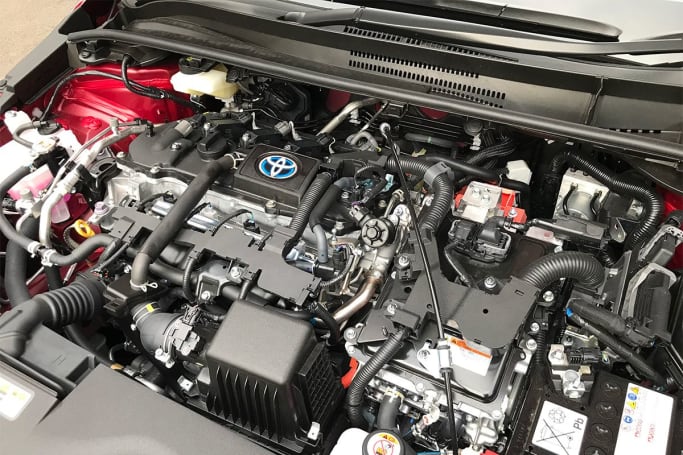
"If you had asked me five or seven years ago about plug-ins, I might have said something like, 'I'm not sure Australia's ready to plug in yet'. There are reasons for that, because the technology just wasn't quite there at that point," Hanley said.
"If you asked me [now] about plug-in, I would say to you 'actually, there are some significant benefits for a plug-in hybrid right now'.
"One is the battery technology has improved and you're getting better range on battery only. I'm not talking zero to 40 either. You're getting 200kms potentially, of battery-only power, and then you get the benefit of the normal hybrid engine.

"But here's the deal. You don't ever have to worry about range anxiety, because you can fill it up. You never have to worry. And if you can plug it in somewhere, happy days! You're gonna get a bit of extra benefit.
"So the technology has moved on a lot... the infrastructure is now being built around the country. So there's really a lot of good reasons right now why you would rethink plug-in hybrid as a viable technology."


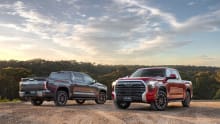
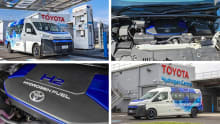

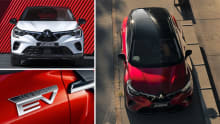

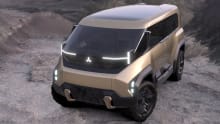
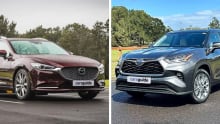

Comments